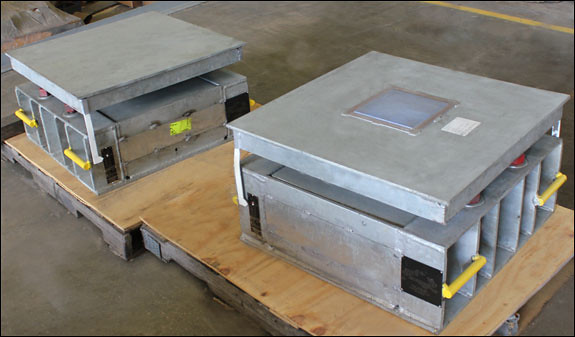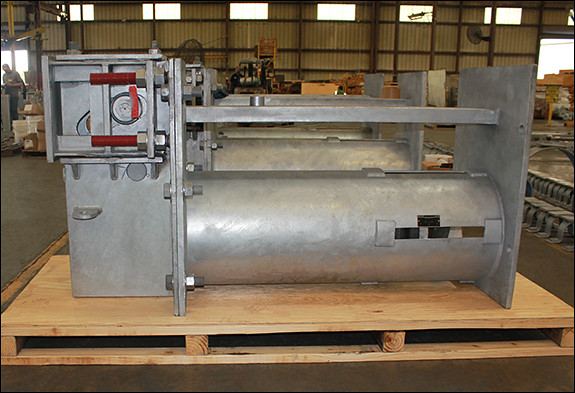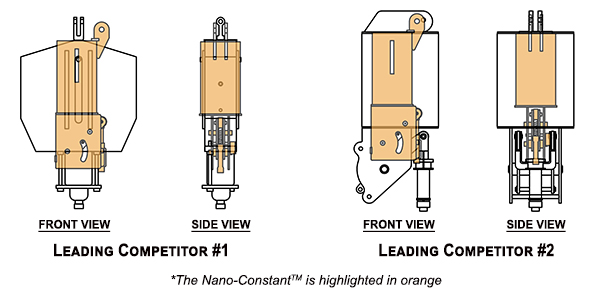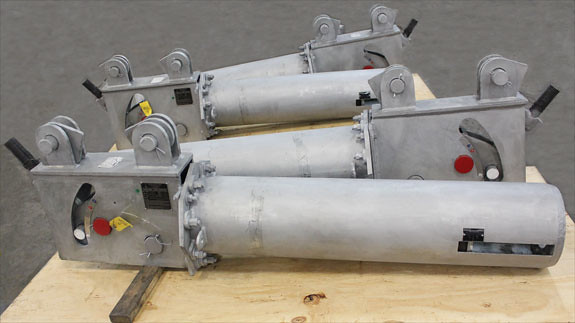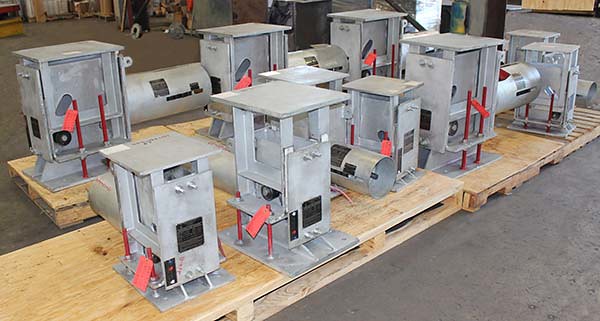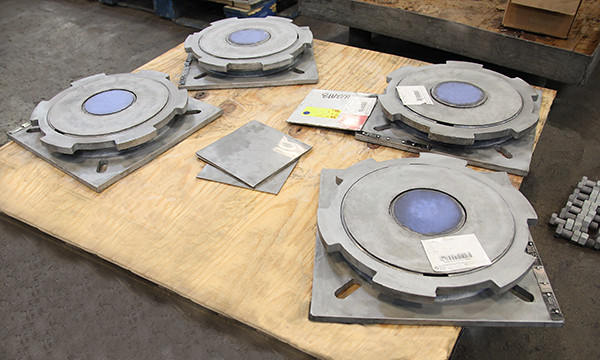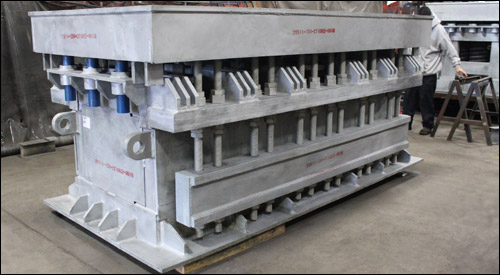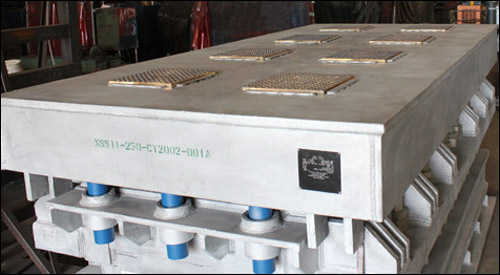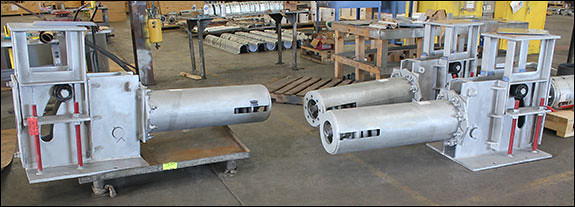These big ton variable spring assemblies were custom designed for an LNG plant in Western Australia. They were specially designed with PTFE, 25% glass-filled slide plates, and will be used to both support the vertical load and allow thermal growth of horizontal pressure vessel saddle supports. These units measure 30″ x 30″ and are capable of supporting a load up to 95,000 lb. with down travel of 2 to 5mm vertical.
Horizontal pressure vessels are used in a wide range of industries as storage containers, separation tanks, or settling drums. Our Big Ton springs have also been designed and manufactured to support very large Gasifiers. These units mix air, steam, and coal under high temperatures/pressures to produce syngas which is considered a source of renewable energy because it’s more efficient than direct combustion of the original feedstock (coal) since it can be combusted at higher temperatures so that the thermodynamic upper limit produces better efficiency.
As one of the first companies to design, manufacture, and test big tons, we possess the engineering expertise, testing, and “know-how” in order to meet or exceed many of our client’s expectations. Our exceptional design team is able to build 3D models and perform FEAs in order to ascertain optimum designs for big tons for given applications.
PT&P REF. ORIGINAL POST 02092016
Read More
